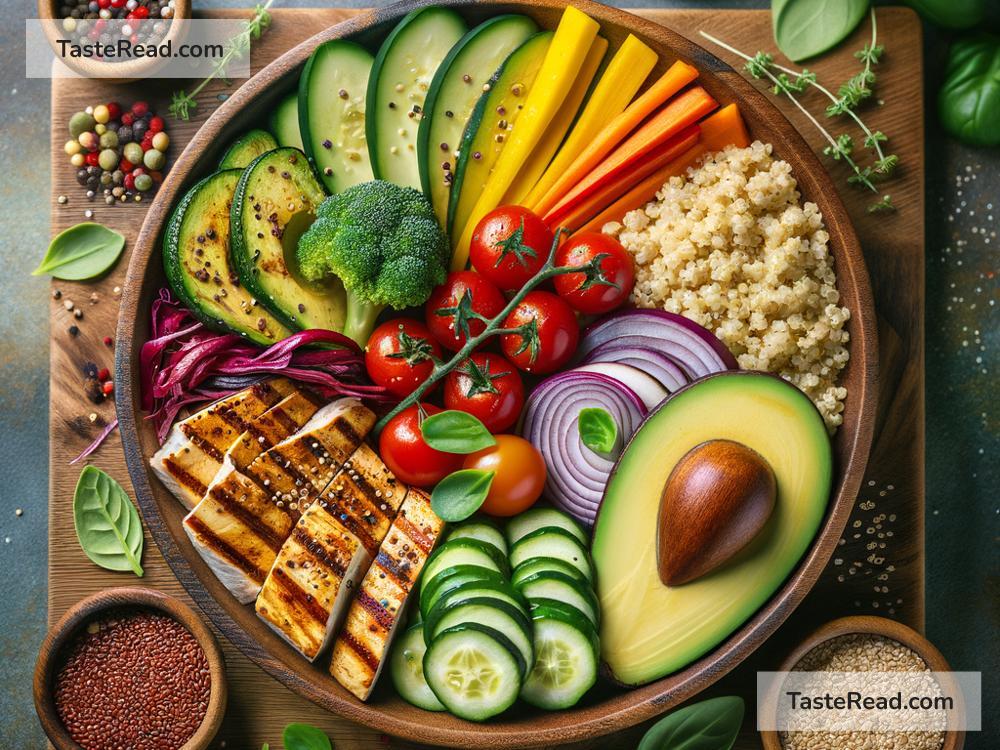The Science Behind Balanced Nutrition: How to Feed Your Body Right
Have you ever wondered why we hear so much about eating a “balanced diet”? What exactly does “balanced nutrition” mean, and why is it important for your health? Let’s dive into the science behind balanced nutrition and learn how fueling your body the right way can make a big difference in your overall well-being.
What Is Balanced Nutrition?
Balanced nutrition means giving your body all the nutrients it needs in the right amounts to work its best. Just like a car needs gas, oil, and regular maintenance to run smoothly, your body needs a mix of vitamins, minerals, proteins, carbohydrates, fats, and water to stay healthy and function properly.
Each nutrient plays a specific role in your body. For example, proteins help build muscles and repair tissues, carbohydrates provide you with energy, fats support your brain and hormones, vitamins and minerals boost your immune system, and water keeps everything running smoothly. When any of these nutrients are missing or out of balance, your health can suffer.
How Your Body Uses Nutrients
Your body is like a high-tech machine that works around the clock. Here’s a simple breakdown of how it uses the food you eat:
-
Energy Production: Most of your energy comes from carbohydrates. When you eat foods like bread, rice, or fruits, your body breaks them down into glucose (sugar) to fuel your cells. Think of glucose as your body’s main power source.
-
Building and Repair: Proteins, found in foods like chicken, beans, and eggs, are the building blocks for muscles, tissues, and even enzymes that help with digestion.
-
Fat Storage and Hormones: Fats, found in foods like avocado, nuts, and fish, help protect your organs, store energy for later use, and produce important hormones like estrogen and testosterone.
-
Micronutrient Support: Vitamins and minerals don’t give you energy, but they are essential for important functions like improving immunity or keeping your bones strong. For instance, calcium strengthens your bones, and Vitamin C helps your body fight infections.
-
Hydration: Water is vital for every cell. It helps transport nutrients, maintain body temperature, and flush out toxins. Without enough water, your body feels sluggish and dehydrated.
Why Is Balance So Important?
Your body needs a mix of all these nutrients to stay healthy. Imagine building a house: you need bricks, cement, wood, nails, and tools. If you only have bricks and no cement, your house won’t stand. It’s the same with balanced nutrition—if you eat too much of one nutrient and not enough of others, your body doesn’t get everything it needs.
For example, eating too much sugar from candy or soda can give you quick energy but isn’t sustainable. It might even lead to energy crashes or weight gain. On the other hand, eating zero fat because you think it’s “bad” can hurt your brain health and hormone balance.
The key is variety. Eating a wide range of foods ensures your body gets all the nutrients it needs without overloading on one type.
How Does Science Help Us Understand Nutrition?
Scientists study how food interacts with the body to understand what we need to stay healthy. They’ve identified macronutrients (carbohydrates, proteins, and fats) and micronutrients (vitamins and minerals) that are essential for life.
Thanks to research, we know how much of each nutrient we need, which varies depending on age, gender, and activity level. For example, athletes might need more protein than someone who doesn’t exercise, and pregnant women require extra nutrients like folic acid to support the development of their baby.
Scientists also study how unhealthy diets affect the body. For instance, eating too many processed or sugary foods can lead to problems like obesity, heart disease, and diabetes. On the flip side, a diet rich in fruits, vegetables, whole grains, and lean proteins can lead to better health and longer life.
Easy Tips for Balanced Eating
You don’t need to be a nutritionist to eat a balanced diet. By following some simple tips, you can improve your nutrition one meal at a time:
-
Fill Half Your Plate with Fruits and Vegetables: These are rich in vitamins, minerals, and fiber, and they help you feel full.
-
Choose Whole Grains: Swap white rice or white bread for brown rice, quinoa, or whole wheat bread. Whole grains have more nutrients and keep you energized throughout the day.
-
Include Lean Proteins: Eggs, chicken, fish, beans, tofu, and nuts are great choices. They help repair your body and keep you strong.
-
Don’t Fear Healthy Fats: Foods like olive oil, avocado, and nuts provide good fats that support brain health and fight inflammation.
-
Drink Plenty of Water: Aim for at least 8 glasses of water a day to stay hydrated.
-
Limit Sugar and Salt: Too much sugar and salt can harm your body, so it’s best to avoid sugary drinks and processed snacks.
Conclusion
Balanced nutrition isn’t about strict diets or avoiding your favorite foods—it’s about giving your body what it needs to stay strong and healthy. When you eat a variety of foods in the right proportions, you’re not just nourishing your body; you’re setting yourself up for a happier and more energetic life.
The science behind balanced nutrition is simple—feed your body well, and it will thank you by performing its best. Start small, make smart choices, and enjoy the journey to better health!

